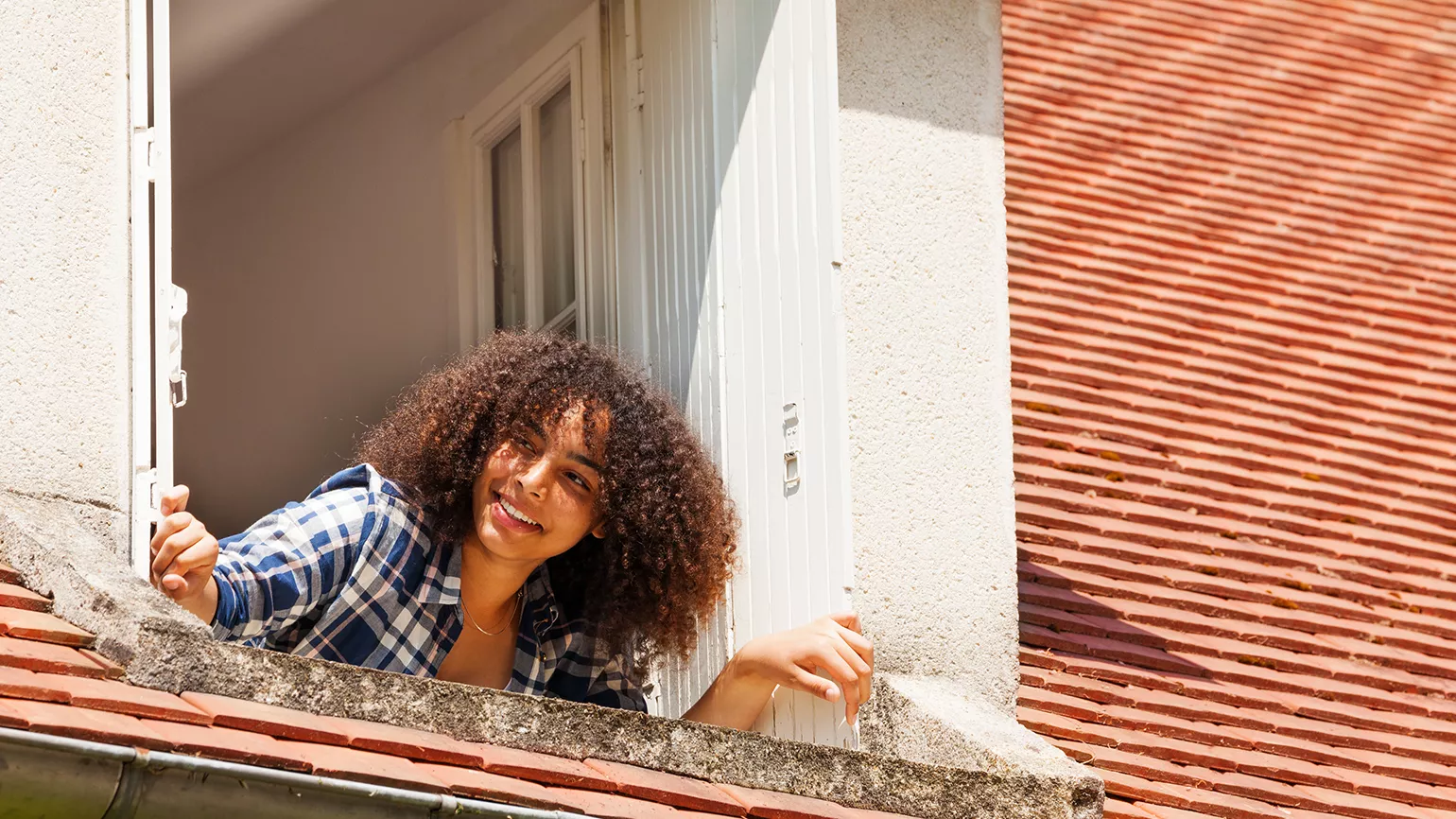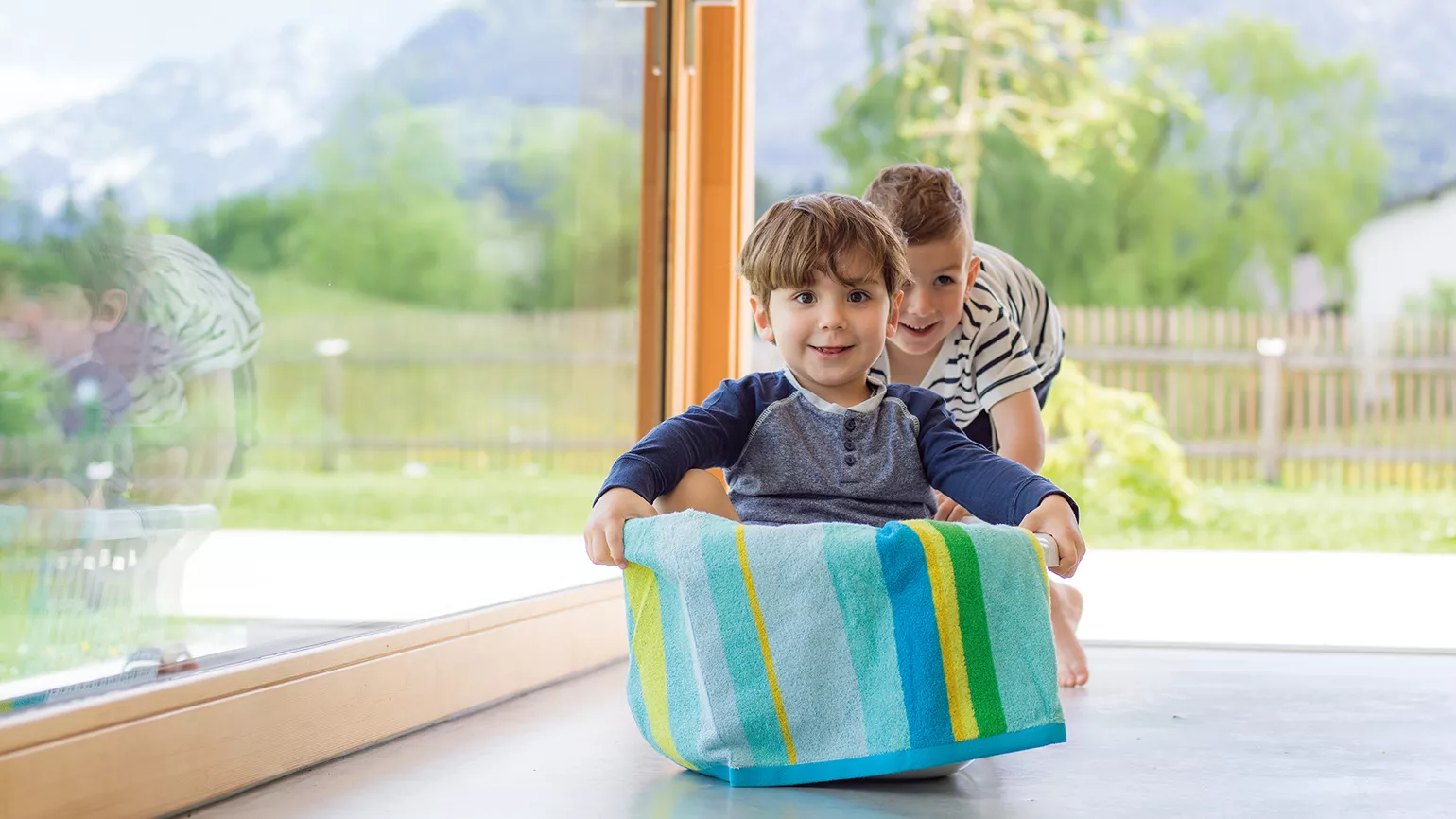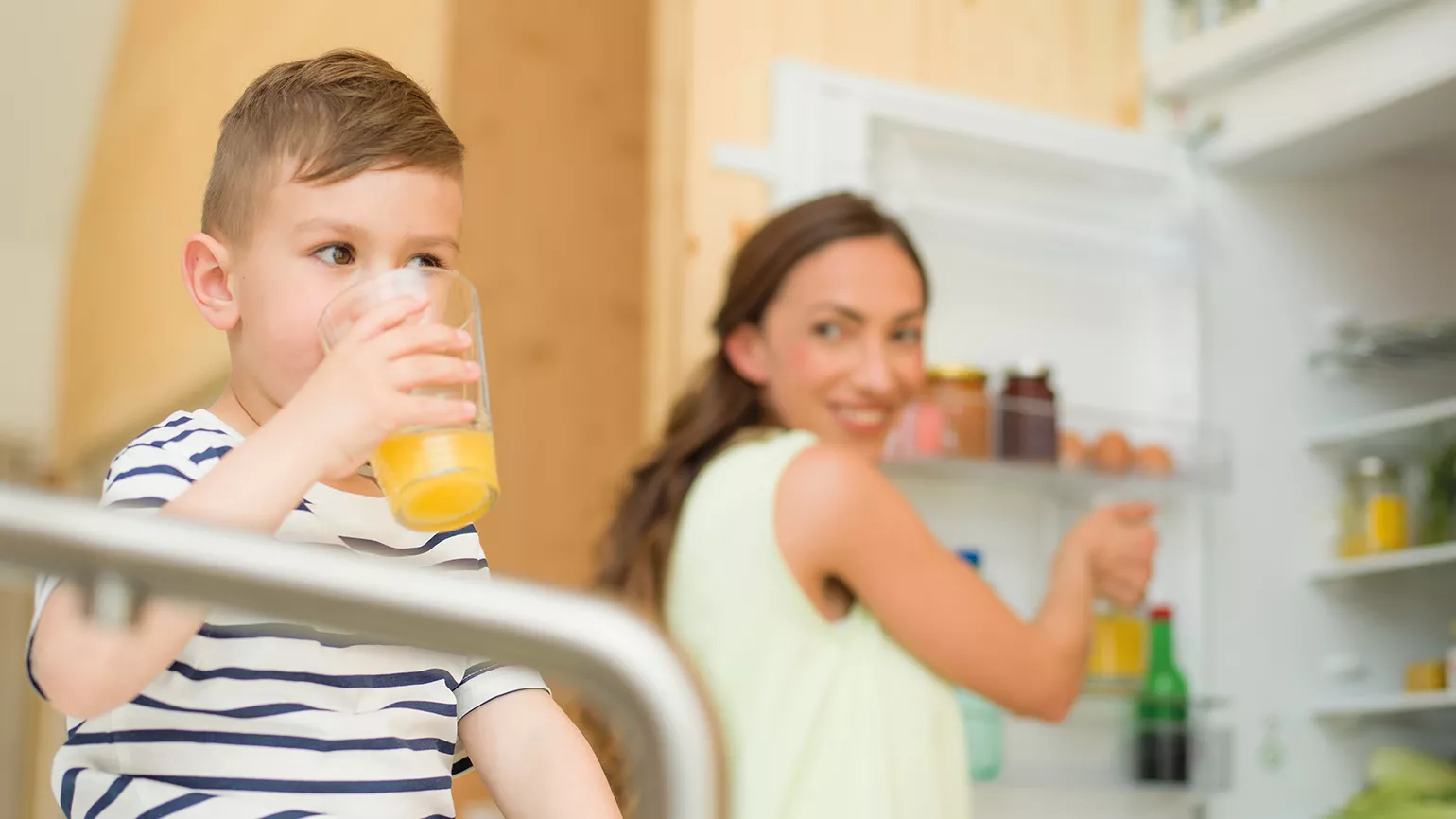5 Energy Saving Tips for Summer
Tip 1: Correct ventilation
Just like in winter, efficient ventilation is half the battle. The temperature is at its lowest outside early in the morning and at night, so you should ventilate your rooms at these times too. During the summer months of June to August it is best to ventilate for 30 minutes. As of 11 a.m., when the midday heat sets in, you should only open your windows briefly to quickly change the air, otherwise you should keep them closed. Doing this will allow you to enjoy pleasant temperatures, even in the summer, and save energy, money and CO2 as you can reduce your use of fans or air conditioning systems.
Curtains and roller blinds are also useful in keeping the heat out of your home. If you’re not at home during the day or it’s hot at midday, close the curtains and lower the blinds. Trees are also your best friends during the summer months: not only do they produce oxygen, they also provide shade.

Tip 2: Air conditioning or a fan?
On some very hot days, you might need or want a bit of extra cooling, if so, ideally you should use a fan. And the reason is simple: an air conditioning system that is running for 8 hours a day over 30 days accounts for 70 kg of CO2 and uses a lot of electricity. Fans are by far the more environmentally friendly and lower-cost option. Nonetheless, it is best to only leave them running when you are in the room, otherwise switch them off.
Photovoltaics for the home
Important: Use of air conditioning systems poses the risk of getting a chill or a cold as the appliance generates huge temperature differences between indoors and outdoors in the summer. You should also be careful with fans, but you can minimize the risk of getting a chill by following these tips:
- Only use the highest fan setting for short periods. When using the fan for a longer period of time, you should select a medium to low setting.
- Never aim the fan directly at people, especially not at their head or throat area.
- Fans should not be left running overnight in bedrooms. Ideally, you should air the room half an hour before you go to bed on the maximum setting.
Tip 3: Save energy by using a washing line instead of a tumble dryer in summer
Something you really should make use of in summer is the good old washing line. In this case, the old way of doing things has stood the test of time: with up to 120 kg of CO2 savings per year compared to a tumble dryer, it is the clear front runner when it comes to energy efficiency. A 3-person household will also save a significant amount of energy costs. On hot days, in particular, washing will usually dry more quickly on the line than in the dryer.
Bonus tip: If you can’t be without your tumble dryer, then you should buy one with a high energy efficiency rating (A+++) and run the machine with a full load.

Tip 4: Have a barbecue instead of cooking indoors
Barbecues are very popular, especially in the warm summer months. It makes sense too, as cooking creates heat and warms up your apartment or house. To quickly cool their homes down again, people often switch on a fan or the air conditioning, which also consumes energy and drives up costs. It’s much more practical to get out the barbecue instead. Cold dishes, such as salad or antipasti are also a great idea if the hot weather has reduced your appetite.
Did you know that if you have a charcoal barbecue, you should look for the FSC or Naturland logo when purchasing charcoal so you can be sure that it was ecologically produced. As well as classic charcoal, you can also buy coconut shell briquettes or bamboo charcoal, which are more CO2 neutral. However, solar, gas or electric grills are more environmentally friendly.
It’s what you barbecue that makes the main difference though: 95 percent of CO2 emissions from a barbecue depend on what you’re cooking. So the more vegetarian/vegan your dishes are, the lower the CO2.

Tip 5: Energy guzzler – the refrigerator
Fridges and freezers consume the most energy, especially in the summer. When you open the fridge door, the cool air escapes and the fridge must use energy to replace this. The impact is especially noticeable when the ambient temperature is high: each time you open the fridge, it uses as much energy as a 12 W energy-saving bulb which is lit for 50 minutes.
On average this results in 15 kg of unnecessary CO2 for each household every year – just from opening the fridge door! So it makes sense to think about what you want from the fridge in advance, so you can close the door again as quickly as possible. What’s more, the fuller the fridge, the better the cooling capacity and therefore the lower the amount of energy consumed.
Bonus tip: It also makes sense to switch to a modern, energy-saving fridge, both financially and from an ecological perspective. For example, an appliance with an energy efficiency rating of A+++ uses up to 50 percent less electricity than its previous models.

